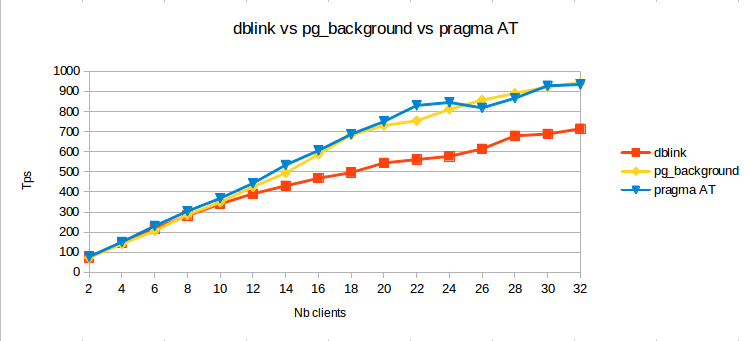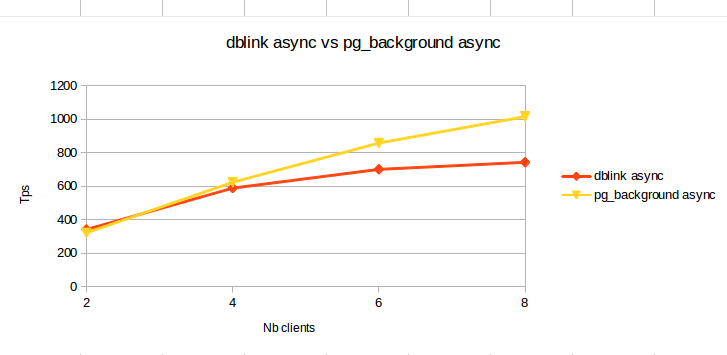I’ve talked about two different implementations of Autonomous Transaction with PostgreSQL in my previous post on August 19th. On August 31st, Peter Eisentraut submitted a patch to implement PRAGMA AUTONOMOUS_TRANSACTION à la Oracle into the core of PostgreSQL. Let’s see how well it performs.
Here is a very simple example of a patched PostgreSQL using a function with the autonomous transaction pragma. It logs independently all actions performed in the database, no matter what the end result of the transaction is.
CREATE OR REPLACE FUNCTION log_action_atx (
username text, event_date timestamp, msg text
) RETURNS VOID AS
$body$
DECLARE
PRAGMA AUTONOMOUS_TRANSACTION;
BEGIN
START TRANSACTION;
INSERT INTO table_tracking VALUES (nextval('log_seq'), username, event_date, msg);
COMMIT;
END;
$body$
LANGUAGE plpgsql;
CREATE OR REPLACE FUNCTION log_action (
username text, event_date timestamp, msg text
) RETURNS VOID AS
$body$
DECLARE
v_query text;
BEGIN
-- Call the autonomous transaction
v_query := 'SELECT log_action_atx ( ' || quote_nullable(username) ||
',' || quote_nullable(event_date) || ',' || quote_nullable(msg) || ' )';
EXECUTE v_query;
-- Do something else
END;
$body$
LANGUAGE PLPGSQL;
This benchmark compares performances of autonomous transaction implemented using dblink, pg_background and the pragma patch. It ran on my personal desktop computer with 1 CPU AMD FX(tm)-8350 - 8 cores. Do not pay attention to the level of transactions per second, these values are expected on this kind of hardware but it will give you an idea of the performance you can expect from these solutions.

In this test, we can see that pg_background and pragma autonomous_transaction have approximately the same performance. This is not surprising because the pragma autonomous_transaction patch also uses background workers to create a dedicated session.
If this patch allows a simpler use of autonomous transactions, it doesn’t allow the asynchronous mode yet. This is clearly a big advantage of dblink and pg_background, as in asynchronous mode, they clearly outperform the pragma autonomous_transaction patch.

Note that, as far as I know, other DBMSes implementing autonomous transaction don’t have an asynchronous mode either.
Anyway, if this patch is committed (as is or not), you will have three ways to create autonomous transactions in PostgreSQL, which is a real good thing. The problem is that solutions that build autonomous transaction through a background worker are creating a new process each time such a transaction is called. This has a performance cost of some milliseconds each time and induces additional context switches. Having some kind of sub-transaction committed before and independently of the main transaction would be a much better solution.
